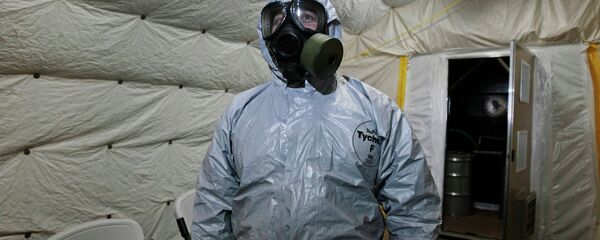"The report has also been sent to the United Nations Security Council," the OPCW statement said.
The organization said that the mission began to work on determining the type of chemical agent within 24 hours of the incident. The OPCW added that its mission could not visit Khan Shaykhun for security reasons, since, according to their conclusions, sarin was used, nevertheless, "the rapid deployment to a neighboring country… enabled the team to attend autopsies, collect bio-medical samples from casualties and fatalities, interview witnesses and receive environmental samples."
The organization said that the report was distributed to states that were parties to the Chemical Weapons Convention and the OPCW’s Executive Council, who would jointly consider the mission's findings at an executive council meeting scheduled for July 5.
On April 4, the National Coalition for Syrian Revolutionary and Opposition Forces, supported by the United States, blamed the Syrian government for an alleged chemical weapon attack in Khan Shaykhun in Syria’s Idlib province. The Syrian army strongly rejected the accusations and laid the blame on local militants and their patrons. The Syrian authorities said that they had never used chemical weapons against civilians or terrorists, and the entire chemical arsenal of the country had been exported under the control of the OPCW.
Reacting to the incident, Washington, which had not presented any proof of the chemical weapon use by Damascus, launched 59 Tomahawk cruise missiles at the Syrian governmental military airfield in Ash Sha’irat on April 6.



